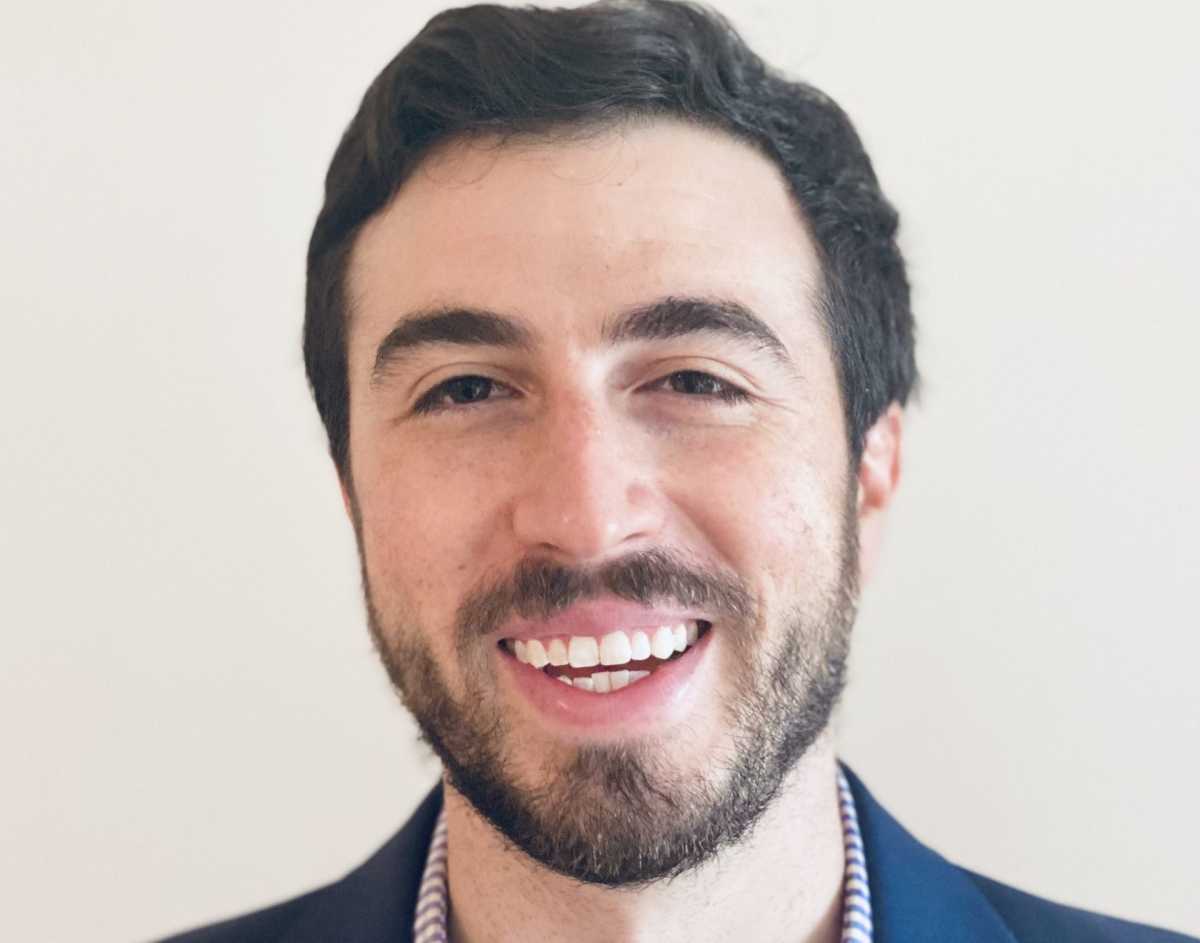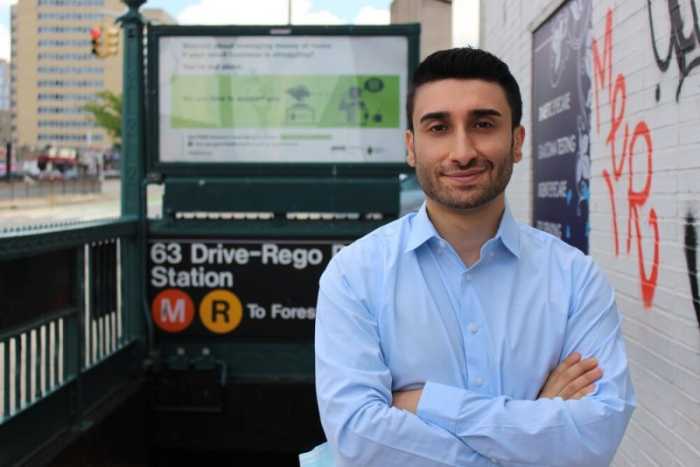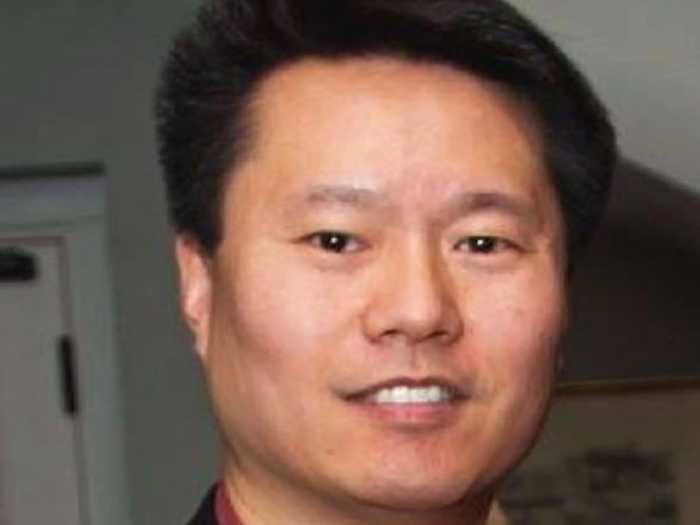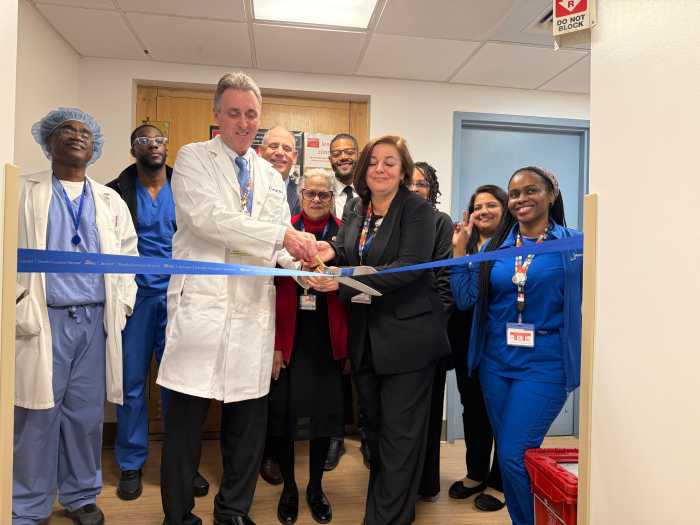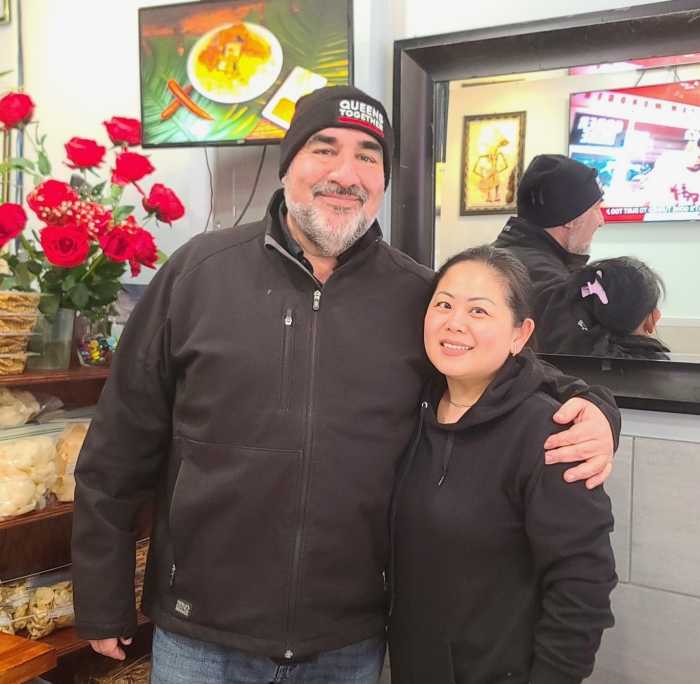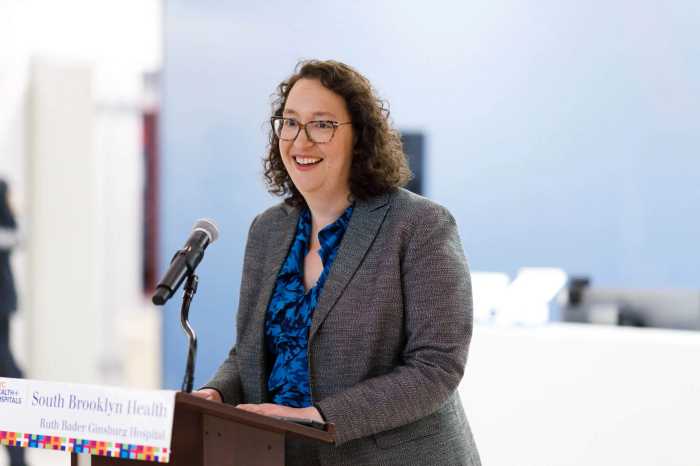City Council Candidate Douglas Shapiro likes to be prepared. So in October, before his outdoor family-only wedding, he wanted to get tested for COVID. He and his wife couldn’t find a rapid testing site in Queens, so they drove to Brooklyn to get the test. He tested positive for COVID-19.
Worried that they would have to cancel their wedding, the couple decided to quarantine near the wedding venue in New Jersey where they would get tested again. They ended up getting tested four times; the original test was a false positive and they were able to have their wedding after all. But the experience left him frustrated. Why couldn’t he get tested in Queens in the first place?
“This is one of those moments where you just have to throw your hands up and say, ‘There’s got to be a better way,’” he said a couple months later.
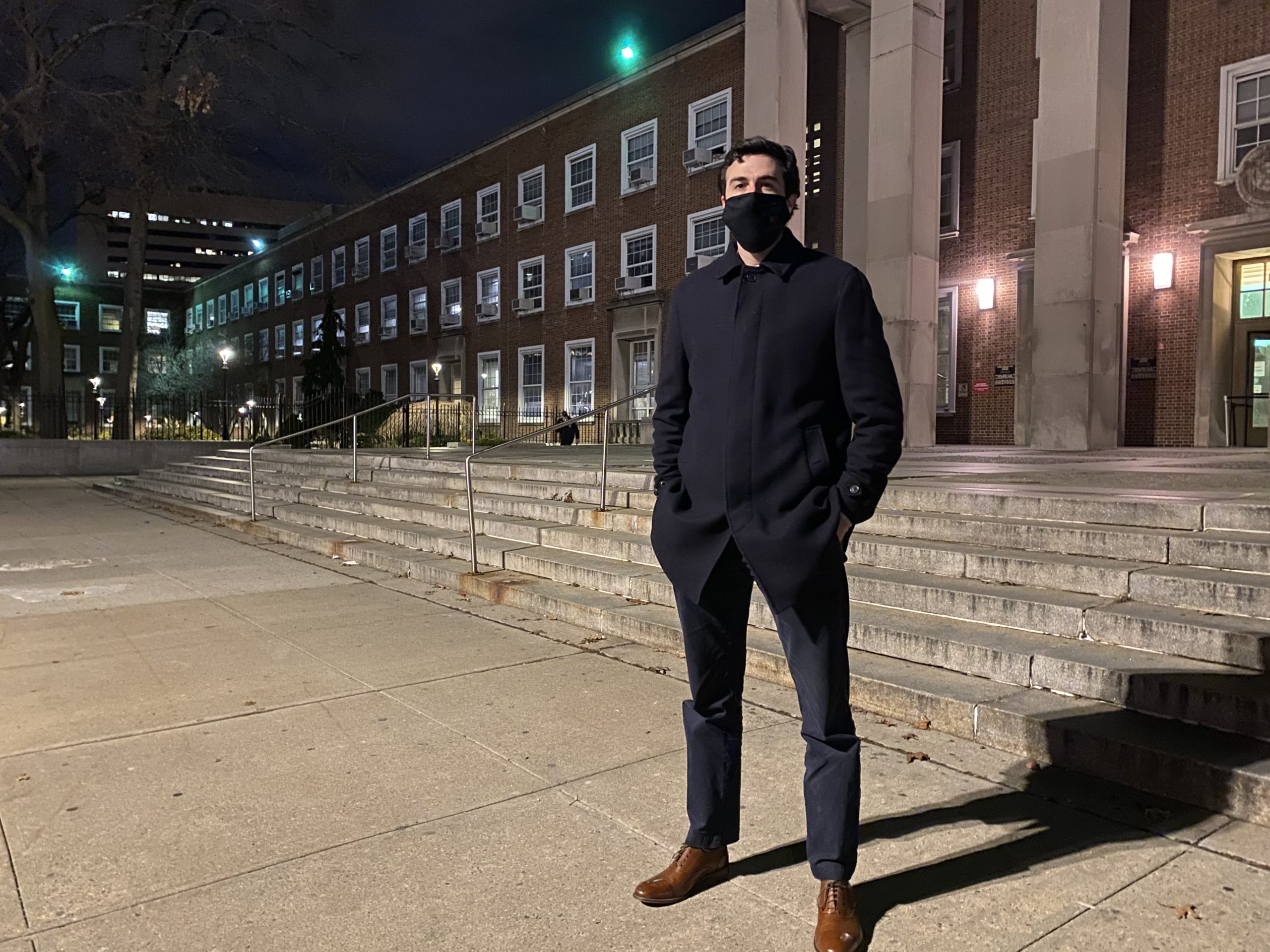
It was December and Shapiro stood by himself outside of Queens Borough Hall braving the 36 degree weather. It was just a little before 7 p.m. on a Monday night and Shapiro was tired; he had just finished his job as a finance analyst and had walked a few blocks to borough hall to speak to me.
Wearing a thin wool coat, his mask the only thing protecting his head from the cold, Shapiro, 31, paced around while he told me why he’s running to succeed term-limited City Councilmember Karen Koslowitz (D-Rego Park, Kew Gardens, Forest Hills, Richmond Hill) in District 29.
“I’m running because we need to have a moral budget in New York City. And what a moral budget means is we must increase our spending on health care and education,” he said.
His campaign motto is “Heal Together.” The motto is meant to highlight his core message of repairing health care and education inequalities by getting at the root of the issues. Shapiro is focused on reducing class sizes, and ensuring that there is rapid COVID testing within a mile of each resident. He also wants to build a new middle school in the district area to alleviate overcrowding which he said contributes to inequality as a whole.
He believes the job requires someone who is prepared to work from the get go and who has the “intellectual stamina and the social stamina,” to do so, he said.
If he wins, he wants to make sure that he will be as effective as possible in the council. With that in mind, he said he plans on contacting the hundreds of candidates running for city council. He is most likely the only candidate to do, he said.
He’s reached out to about half of the candidates so far, he said, and about half of them have responded. He’s betting on befriending at least one other candidate who will win in their race and from there, they can coordinate in the council. He sees this as a crucial part of the job –– a councilmember should advocate for his own district as well as understand the needs of other districts.
“Whoever the next city council member is, they will not be effective if they haven’t built alliances with the new city council,” he said.
He thinks in terms of building alliances partly due to his past experience working for the International Monetary Fund helping to get aid for the West African country of Guinea Bisseau, he said. He would later go on to work as a consultant for the federal government helping to ensure that food stamp recipients got their stamps on time.
“An important lesson I learned, studying the economies of entire countries, as well as economies of particular cities, is that the best long term investment we can make in our community is in education, specifically an elementary education,” he said. “The second best investment, and really the most pressing investment today, is investing in health care.”
He learned those lessons outside of Queens but they’re shaped by formative experiences in Forest Hills where he grew up. He went to Halsey Junior High School in Rego Park, got his Bar Mitzvah at the Reform Temple in Forest Hills and went on to Stuyvesant High School in Manhattan. He later attended Northwestern University.
Both of his parents were teachers and they instilled in him a belief in the power of education. But it’s a belief that is being sorely tested right now according to him.
“I’m not so sure it’s true today,” he said, fiddling with his cloth face mask as it slid off his nose.
He referred to what he called the “cosmic lottery” where your station in life is determined by pure luck and only so much individual effort can be made to change that. His Jewish faith however, gives him solace. The Jewish concept of Tikkun Olam which means to repair the world is a profound influence on him and he sees his campaign and life as a reflection of that.
“Tikkun Olam, for me, means how can we make sure that we have sustainable equitable economic growth in the city,” he said.
He takes the concept seriously. He’s spoken to residents who want a stop sign and a speed bump placed nearby due to the congestion on Queens Boulevard.
The traffic on Queens Boulevard kept zipping by at a steady pace, truck horns occasionally drowning out Shapiro’s voice.
“They’ve been asking DOT or they’ve been asking local political leadership to make things happen and still they haven’t seen results,” he said.
Some residents worry about congestion, others worry about money. Everyone worries about COVID.
“How many thousands of other people have experienced it, all throughout Queens, not just in our neighborhood, but all throughout Queens,” he said.
Queens had suffered the highest death toll of all the boroughs according to city government data. He himself saw this first hand.
“I’ve lost a couple of people in my life that are very important to me, lost a friend from college, and I lost a local mentor,” he said.
He feels that only with rapid testing and vaccination will the borough bounce back.
Our conversation over, Shapiro began his walk home, cutting through Queens Boulevard.
Thirty-eight people had tested positive for the virus that week. We didn’t shake hands.


